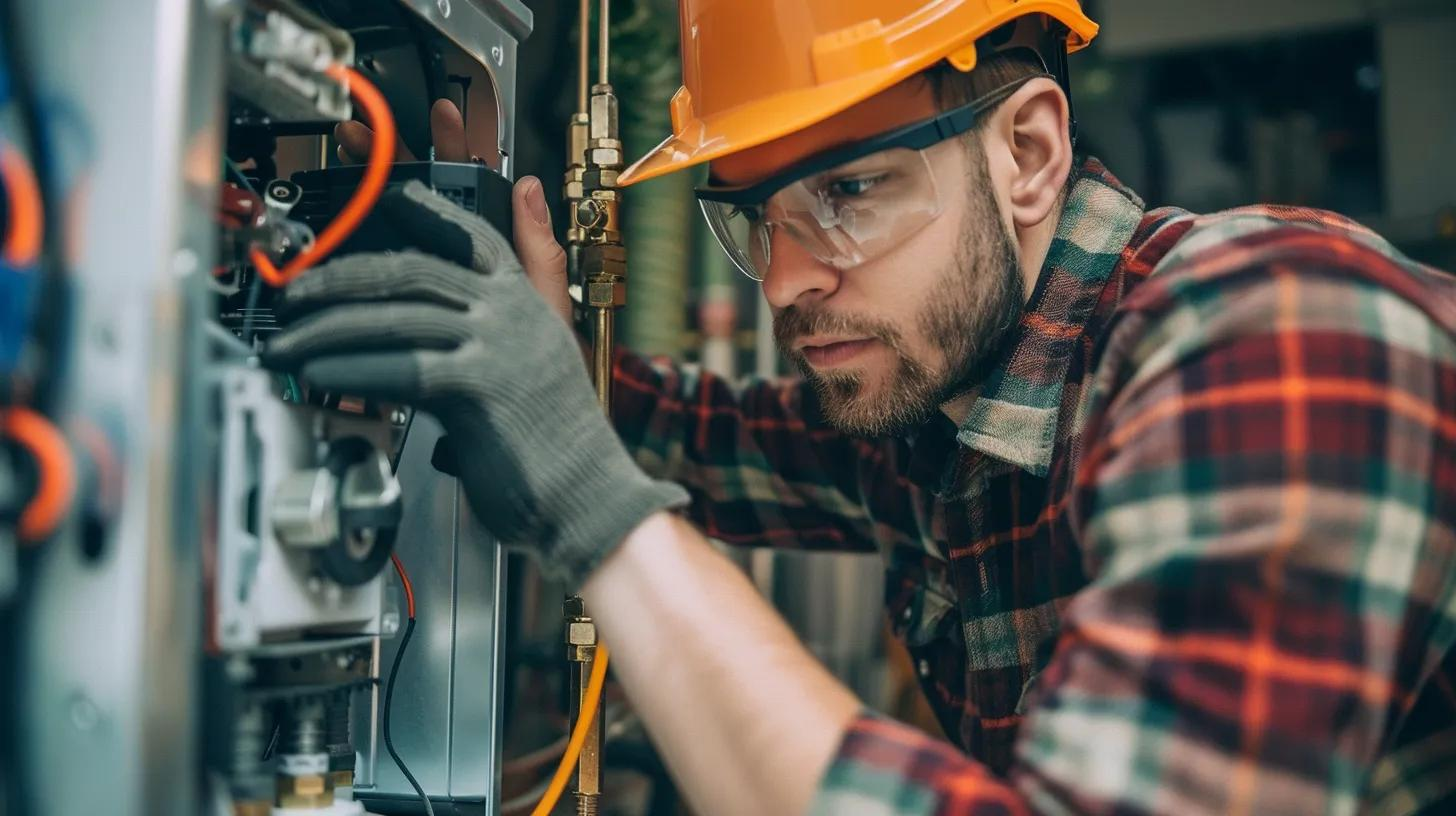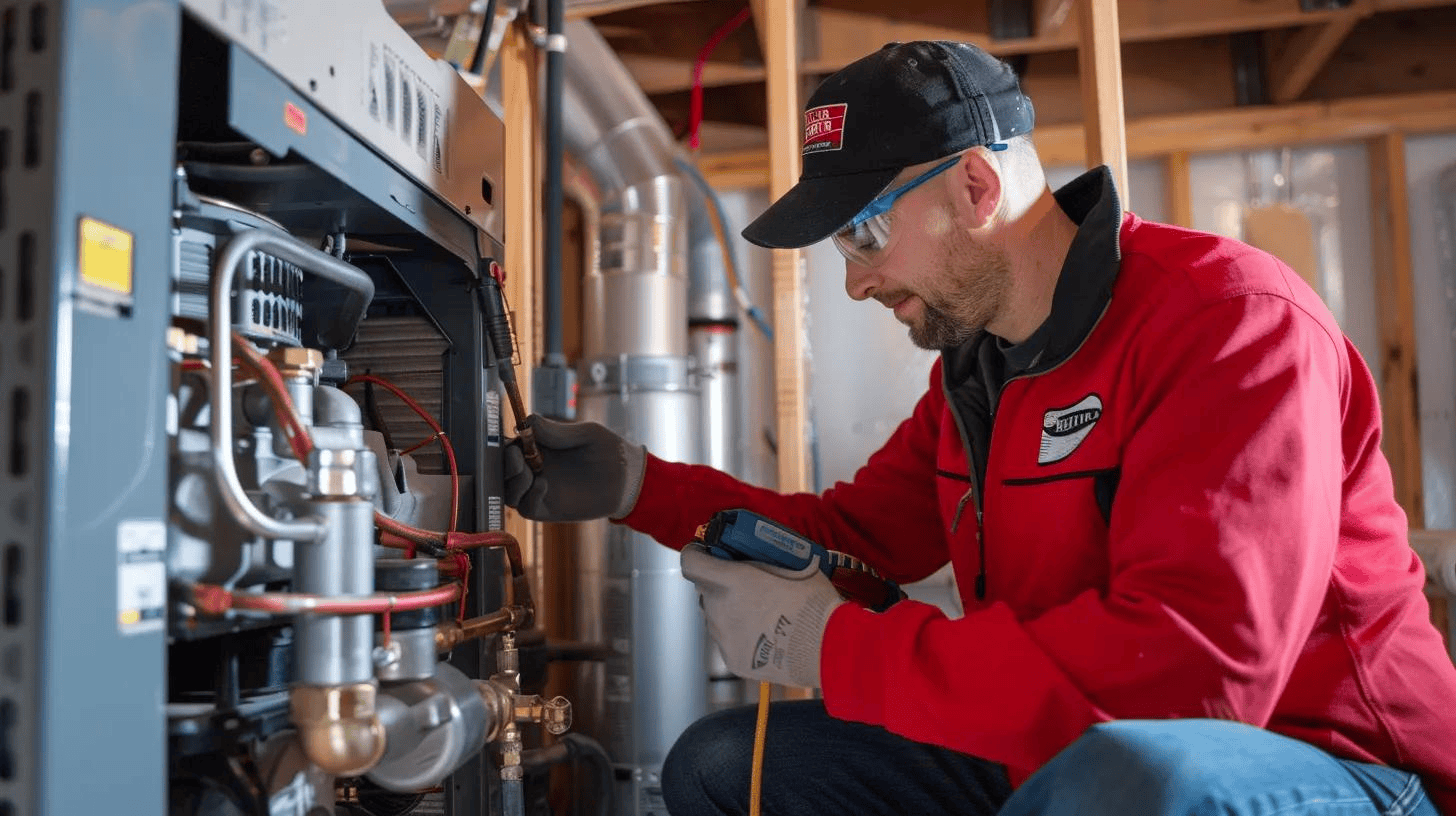Furnace Replacement in North West Washington, DC
Furnace Replacement in North West Washington, DC
Ensure your North West Washington, DC home stays warm with expert furnace replacement. If your unit is old, inefficient, or frequently needs repairs, consider upgrading. New furnaces offer enhanced energy efficiency, superior comfort, and increased reliability. Our comprehensive process includes a detailed home assessment, optimal system selection, precise installation, and thorough testing. We help you decide between repair and replacement, ensuring a wise investment for lasting home warmth and improved indoor air quality this winter.

Expert Furnace Replacement in North West Washington, DC
When the winter chill descends on North West Washington, DC, a reliable and efficient furnace is not a luxury—it's essential for your home's comfort and safety. An aging or failing furnace can lead to inconsistent heating, surprisingly high energy bills, and the constant threat of a complete breakdown when you need it most. Investing in a professional furnace replacement ensures your home remains a warm, comfortable sanctuary through the coldest months. This process involves more than just swapping out an old unit; it’s an opportunity to upgrade your home’s energy efficiency, improve indoor air quality, and secure dependable heating for years to come.
Signs It's Time to Replace Your Furnace
It can be difficult to know whether a simple repair will suffice or if a full replacement is the more prudent long-term solution. Being aware of the key warning signs can help you make an informed decision and avoid an emergency breakdown.
- Age of the System: Most furnaces have a lifespan of 15 to 20 years. If your unit is approaching or has surpassed this age, it is operating on borrowed time, and its efficiency has likely declined significantly.
- Rising Energy Bills: A furnace loses efficiency as it ages. If your heating costs are steadily increasing without a change in your usage habits, your furnace is likely working harder and consuming more fuel to produce the same amount of heat.
- Frequent and Costly Repairs: Are you calling for repairs every winter? If repair costs are starting to add up, investing that money into a new, reliable system is often the more financially sound choice.
- Uneven Heating: Cold spots and rooms that never seem to get warm enough are common signs that your furnace can no longer distribute heat effectively throughout your home.
- Strange Noises: While all furnaces make some noise, loud or unusual sounds like banging, rattling, popping, or screeching can indicate serious mechanical problems, such as a cracked heat exchanger or failing blower motor.
- Visible Signs of Wear: Rust, corrosion, or cracks on the furnace unit itself are clear indicators that its physical integrity is compromised and replacement is necessary.
The Benefits of Upgrading to a New Furnace
Replacing your old furnace is an investment in your home that delivers immediate and long-term advantages. Modern heating systems offer significant improvements over older models.
- Enhanced Energy Efficiency: New furnaces are built to much higher efficiency standards, often indicated by their Annual Fuel Utilization Efficiency (AFUE) rating. Upgrading from an older furnace with a 60% AFUE rating to a new high-efficiency model with a 95% AFUE rating means that 95 cents of every dollar you spend on fuel is converted into usable heat, dramatically lowering your monthly energy bills.
- Improved Home Comfort: Modern furnaces provide superior temperature control and more consistent heat distribution, eliminating the cold spots and temperature swings common with older systems.
- Increased Reliability: A new furnace provides peace of mind, significantly reducing the risk of unexpected breakdowns during a cold snap. You can depend on consistent performance all winter long.
- Better Indoor Air Quality: New systems are better equipped to filter dust, dander, pollen, and other airborne particles. When paired with advanced filtration or air purification systems, a new furnace can greatly improve the air your family breathes.
- Quieter Operation: Advances in insulation, motor technology, and overall design make new furnaces operate far more quietly than their predecessors.
The Furnace Replacement Process
We follow a meticulous, professional process to ensure your new furnace is installed correctly for optimal performance and longevity.
- Comprehensive Home Assessment: Our process begins with a thorough evaluation of your home’s specific heating needs. We perform a load calculation to determine the exact size and capacity required for your space, considering factors like square footage, insulation, window quality, and the layout of your North West Washington, DC home.
- System Selection: Based on our assessment and your budget, we provide you with clear options for gas or electric furnaces. We explain the benefits of different efficiency ratings and features, helping you select the perfect system for your needs.
- Safe Removal and Preparation: On installation day, our certified technicians will carefully and safely disconnect and remove your old furnace and prepare the space for the new unit, ensuring all surrounding areas are protected.
- Expert Installation: The new furnace is precisely positioned and connected to your home’s ductwork, fuel line, and electrical systems according to manufacturer specifications and local codes.
- System Testing and Calibration: Once installed, we rigorously test the entire system. We check safety controls, calibrate the thermostat, and ensure proper airflow and combustion to guarantee peak performance and efficiency.
- Final Walkthrough: We clean the work area completely and conduct a final walkthrough with you to explain the operation of your new furnace and thermostat, answer any questions, and provide maintenance tips.
Making the Right Choice: Repair vs. Replace
Deciding whether to repair or replace your furnace can be challenging. A useful guideline is the "50% Rule." If the cost of a repair is more than 50% of the cost of a new system, replacement is generally the better investment. You should also lean toward replacement if your furnace is over 15 years old and requires frequent repairs, as continuing to fix an outdated unit can become a costly cycle with diminishing returns. Upgrading to a new, energy-efficient model will provide superior comfort and long-term savings that an old, repaired unit simply cannot match.






